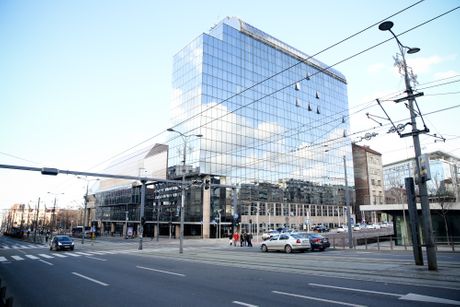This was awaited: Central bank makes latest key policy rate decision

At its meeting today, the NBS Executive Board voted to reduce the key policy rate by 25 bp to 6.25%. The rates on deposit and lending facilities were also lowered – to 5.00% and 7.50%, the central bank announced.
We carry the NBS statement in full:
The Board's decision was motivated primarily by several months of declining inflation at home and its return within the target band in May, consistent with the NBS’s projections, as well as by the anticipated movements in inflation and other macroeconomic indicators at home and abroad in the coming period. In view of the further waning of global inflationary pressures and the disinflationary impact of tight monetary measures so far, the Executive Board assessed that conditions are in place to embark on monetary policy easing by lowering the key policy rate.
Global inflation has continued to subside and approach pre-pandemic levels, mostly reflecting the effects of past monetary policy tightening by central banks, weakening of cost-push pressures and the easing of global supply chain bottlenecks. The NBS Executive Board does not expect any major increase in the prices of products and services we import, but continues to keep a close eye on all supply- and demand-side factors which could impact future inflation movements, and this will form the basis of future monetary policy decisions.
Most central banks anticipate inflation to retreat within target bounds in H2 2024 or H1 2025, while market participants expect that the cycle of monetary policy tightening is over. At its meeting on 6 June, the ECB started easing its monetary policy by lowering its key rates by 25 bp each, pointing out that its future decisions will be based on a cautious assessment of inflation dynamics and outlook. The Fed kept monetary conditions unchanged in July, but is still expected to begin monetary policy easing before the end of the year.
The expected gradual decrease in the price of euro-indexed borrowing in the local market, along with the initiated reduction of the NBS key policy rate, should contribute to a steady increase in lending activity and domestic demand, which will however not jeopardise the downward trajectory of inflation. The Board had in mind that the relevant institutions envisage a mild decline in global oil prices in the period ahead and their view that the oil price growth sparked over the past months by heightened geopolitical tensions and an array of other factors was temporary.
Consistent with the Executive Board’s expectations, y-o-y inflation in Serbia returned within the 3±1.5% target band in May, measuring 4.5%. Inflation slowed down thanks to food prices, which recorded a 0.2% m-o-m decline in May, as well as energy prices where last year’s electricity and gas price hikes dropped out of the y-o-y rates. At the same time, core inflation recorded a somewhat stronger increase than in April, amounting to 5% y-o-y.
The Board expects inflation to recede further, staying within the target band in the medium term and hovering around the 3% target as of early 2025. Such inflation profile will be supported by the still restrictive monetary conditions, reduced global inflationary pressures, and lower inflation expectations of market agents.
According to the SORS data, real GDP growth stepped up in Q1 to 4.7% y-o-y, outperforming the flash estimate. Growth was led by the upswing in services, industry and construction. April data point to the continuation of favorable trends in early Q2. Domestic consumption growth is underpinned by the increase in real income originating from higher wages and pensions and lower inflation.
At the same time, fixed investment is rising on the back of higher profitability of the corporate sector in recent years, robust FDI inflow and sizeable government capital expenditure, notably for investment in infrastructure. The Executive Board judges that though domestic demand will continue to drive growth going forward, it is not likely to exert any major impact on inflation.
The Board stresses that it will keep a close eye on domestic and international markets and that future monetary policy decisions will depend on the pace of further inflation slowdown. Decisions will be made taking care of the maintenance of financial stability and favourable growth prospects.
The next rate-setting meeting will be held on July 11.
(Telegraf Biznis)
Video: Devet izazova vise nad glavom svetske ekonomije dok je Ukrajina u ratu: Svačiji novčanik je ugrožen
Telegraf.rs zadržava sva prava nad sadržajem. Za preuzimanje sadržaja pogledajte uputstva na stranici Uslovi korišćenja.

